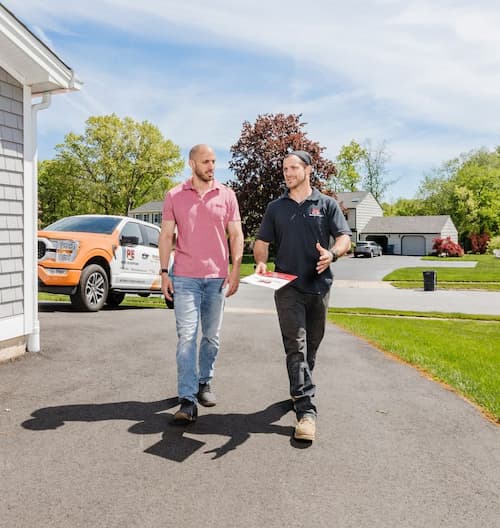
August 26, 2025
When the power goes out in Connecticut, the stakes are high, especially if you’re relying on electricity for medical support, staying home with young kids, or simply trying to keep your fridge running and your home office online. Choosing the right size generator ensures your home can safely and comfortably function until power is restored.
In this home generator size guide, we’ll walk through the key factors that determine what size backup generator your home actually needs. We’ll also highlight how PE Home Generators can help you avoid guesswork and install a system that gives you true peace of mind.
Why Getting the Generator Size Right Matters
Installing a generator that’s too small means it won’t be able to power all your essentials—or it may overload and shut down when you need it most. On the flip side, going too big can lead to unnecessary upfront costs and inefficient operation.
A properly sized generator balances your energy needs with fuel efficiency, long-term durability, and safety. It ensures your family can remain comfortable at home, without worrying about spoiled food, failed medical devices, or frigid indoor temperatures during winter outages.
Factors That Influence How Much Power You Need
Essential Appliances and Systems
Start by listing the must-haves, the systems that would impact health, safety, or basic comfort if power were lost. This often includes:
- Refrigerator and freezer
- Heating and cooling systems
- Medical equipment (like CPAP machines or oxygen concentrators)
- Well pump or sump pump
- Electric stove or microwave
- Lighting in key areas
- Home office or internet router
These basics can account for a significant portion of your total power demand, especially during extended outages.
Additional Devices and Electronics
Next, consider what’s helpful but not critical. This could include:
- Televisions or sound systems
- Coffee maker or toaster
- Laundry appliances
- Garage door openers
- Outdoor lighting or electric grills
If you frequently entertain, work from home, or have multiple people using electronics, your needs will be higher.
Special Considerations
Some homes have unique power demands, such as:
- Electric vehicle charging
- Multiple HVAC zones
- Home elevators or chair lifts
- Heated floors or towel warmers
- Aquariums or other specialized appliances
If someone in your home has mobility issues or requires temperature-controlled conditions, that should factor into the sizing process as well.
Steps to Calculate Your Home’s Power Requirements
Running Watts vs Starting Watts
Every appliance has two types of power draw:
- Running watts (the amount needed to operate continuously)
- Starting watts (the temporary surge needed to turn on)
For example, a refrigerator may run on 700 watts but needs 2,000 watts to start. You’ll want to size your generator to handle these short spikes without tripping the system.
Use a generator wattage calculator to help estimate these totals, or work with a pro who can audit your home’s actual usage.
Adding a Safety Margin for Future Needs
It’s a smart idea to leave room for growth. If you add a hot tub next year, switch to electric heat, or install new kitchen appliances, you’ll want a generator that can handle those additions.
Most pros recommend adding 10–20% capacity beyond your current needs to give you flexibility without overloading your generator.
Generator Size Estimates by Home Square Footage
While square footage alone doesn’t determine generator size, it can give you a rough starting point:
- 1,000–1,500 sq ft home: 7kW–10kW generator for essential circuits
- 1,500–3,000 sq ft home: 12kW–20kW depending on appliance usage
- 3,000+ sq ft or whole-home coverage: 20kW–26kW or more
Keep in mind that fuel type, HVAC size, and the number of users all affect the final sizing recommendation. Understanding your energy needs, appliance loads, and fuel preferences is the best place to start if you’re unsure how to choose a backup generator that fits your home.
Example of How a Home Generator Is Sized
Let’s say you have a 2,400 sq ft home with central air, a fridge, freezer, microwave, medical devices, and internet equipment. You’d likely need a 14kW to 20kW generator, depending on how many items you’d want to power simultaneously. Our team at PE Home Generators uses real-time load assessments and homeowner input to customize each recommendation.
Tools for Estimating How Much Power You Might Need
If you want to start rough planning on your own, try using this free generator sizing tool from Generac. It’s a great way to visualize how different appliances impact your total wattage requirements.
Fuel Options and Types of Generators to Consider
Natural Gas Generators
Natural gas is a convenient option if your home is already connected to a gas line. It provides continuous fuel during long outages and requires no storage, but availability depends on your location.
Propane Generators
Propane burns clean and can be stored onsite in tanks. It’s a good fit for rural homes or areas without natural gas service. Just be sure your tank is properly sized to match your generator’s expected run time.
Portable vs Standby Generators
Portable generators are great for small-scale or temporary use, but they require manual setup and limited fuel storage. For whole-home protection, a permanently installed standby generator is the most reliable option. These units kick on automatically when power fails, and they’re designed to run for hours (or days) at a time.
We offer a full range of whole-home generators designed to meet the needs of families across Connecticut.
Mistakes People Make When Choosing a Generator Size
- Guessing instead of calculating
- Ignoring startup wattage needs
- Overlooking medical or remote work needs
- Choosing based on price instead of fit
- Forgetting to include fuel storage in the plan
With a properly sized generator, you can ensure your home remains safe and functional through any outage.
When to Bring in a Professional for Sizing and Installation
Choosing the right generator is part science, part planning. Our team is here to help with both.
We’ll evaluate your energy usage, discuss your goals, and recommend a system that matches your home. We’ll also handle permitting, installation, and post-installation support. Already comparing options? Take a look at our current product line!
Concerned about costs? We offer financing plans with payments as low as $129/month for qualified homeowners.
Powering your home shouldn’t come with uncertainty. Let’s find the right generator for your space, your lifestyle, and your peace of mind.Contact us today to schedule a consultation or request a quote.
Disclaimer: The information provided in this blog is for informational purposes only and should not be considered professional advice. For guidance specific to your situation, please consult a licensed professional.
Recent News
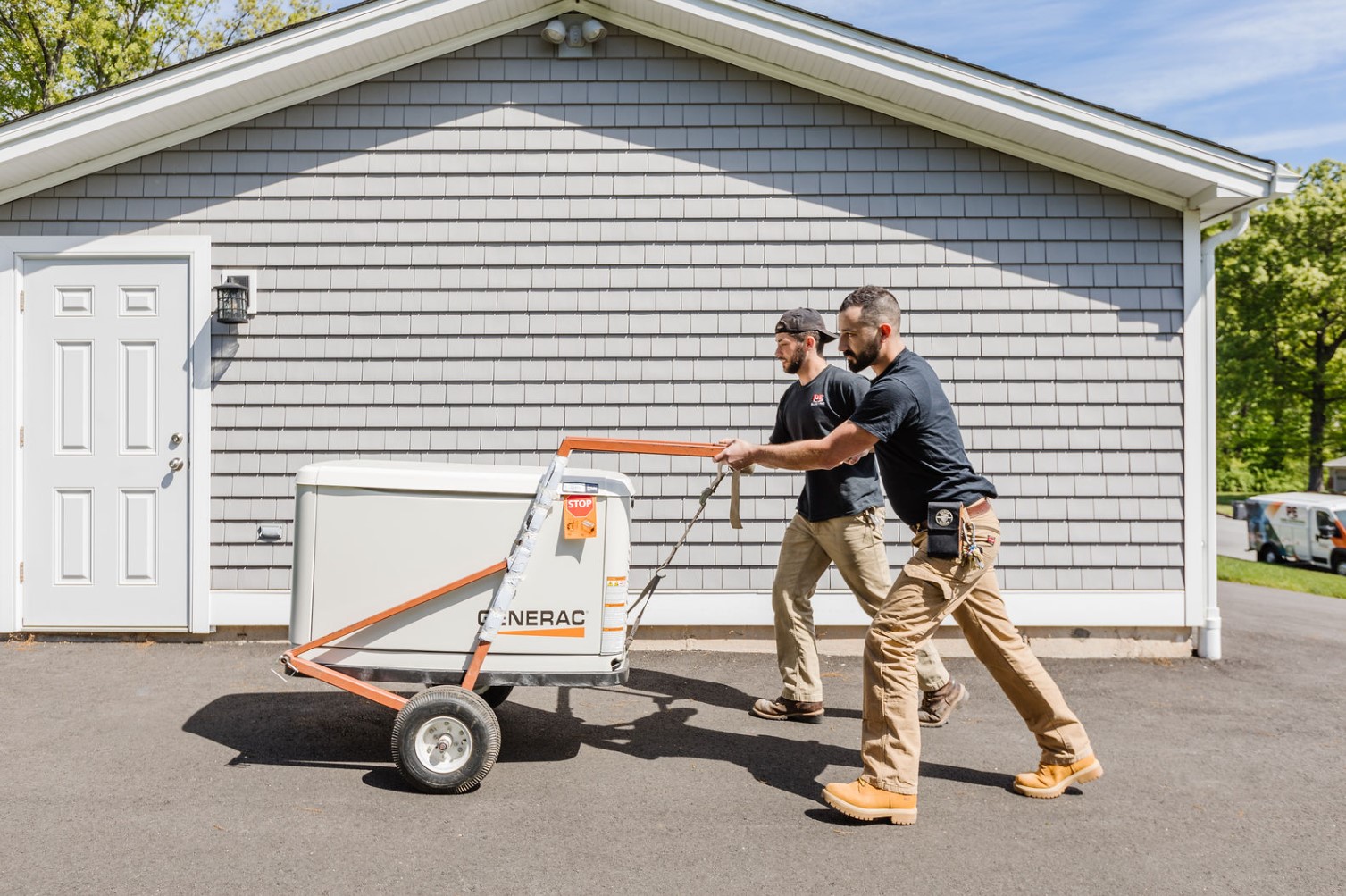
5 Common Myths About Home Generators Debunked
January 20, 2026
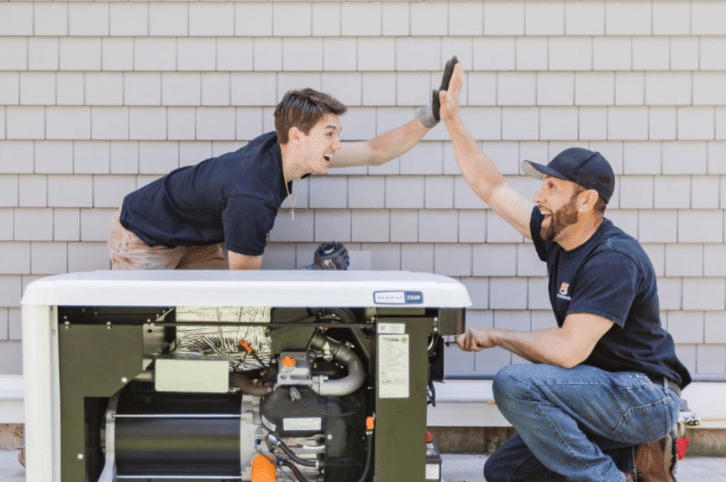
What to Expect During the Home Generator Installation Process
January 14, 2026
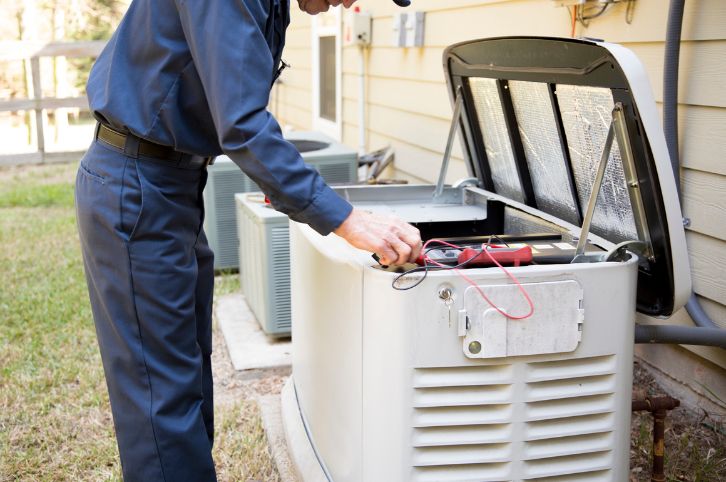
Generator Permitting and Town Regulations in Connecticut
December 16, 2025

The Top 8 Home Projects with the Highest Return on Investment
November 12, 2025
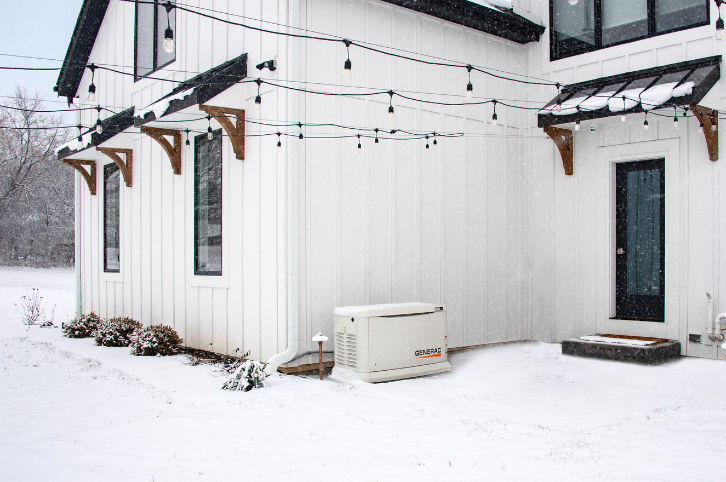
Can You Run a Generator During a Snowstorm or Nor’easter?
November 3, 2025
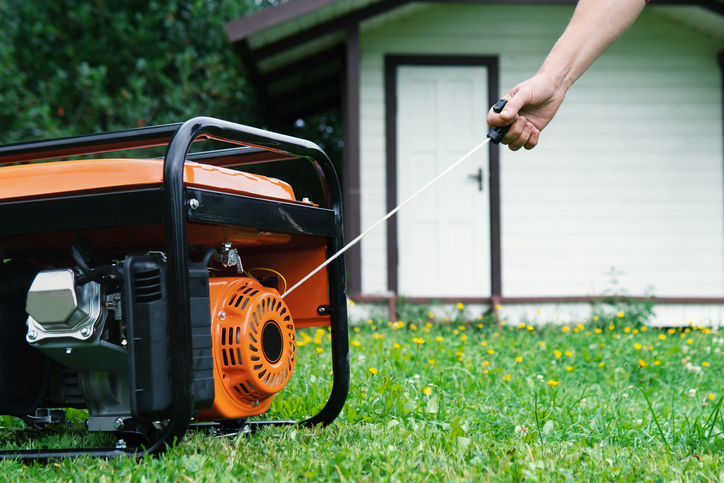
Portable vs. Standby: Choosing the Right Generator for Your CT Home
October 20, 2025

